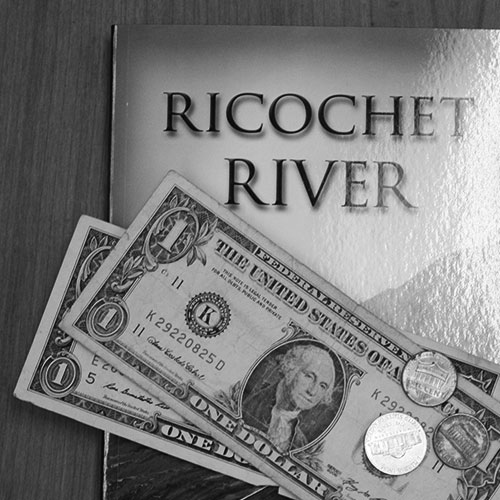After four years spent studying economics, preparing myself to enter the business world, it came as a surprise to many that I chose to pursue my masters in book publishing here at Portland State University. With the common misconception flying about that the publishing industry is dying, how could this decision possibly make economic sense?
At its core, book publishing is still a business. The Association of American Publishers reported the industry-wide net revenue for the 2014 fiscal year to be nearly $28 billion coming from the sale of 2.7 billion books in all formats. The book industry is still a profitable business model. However, there are unique economic challenges faced by the book industry, particularly concerning the uneven cash flows that can result from the periodic nature of book releases and the unexpected success or failure of particular books. That being said, long-term financial stability and profitability are achievable.
Although it is affiliated with Portland State University, Ooligan Press receives no funding from student tuition and is a completely self-sustained business. Like many small presses, Ooligan Press publishes only a few books per year, so the success of the press rests upon a small number of recent releases and backlist titles. Publishing good books begins with acquiring good books, which is why quality acquisitions plays a large part in the success of Ooligan and other publishing houses. The past few years for Ooligan have been in good shape financially, mostly because Ooligan, simply put, publishes good books. Recent success at Ooligan can be seen in the high profit margins of Forgive Me If I’ve Told You This Before by Karelia Stetz-Waters, Untangling the Knot edited by Carter Sickels, and The Ghosts Who Travel With Me by Allison Green. While all three books are newer releases, their profit margins are high, ranging from 20 to 40 percent. Returns are just beginning to come in, but these high initial margins will help the press weather future returns.
Ricochet River by Robin Cody is one backlist title that has continued to add to the financial sustainability of Ooligan Press since its acquisition in 2005. Because of its adoption into curriculums in Oregon school districts and its selection as one of the top one hundred literary works produced in Oregon in the past two hundred years by the Oregon Cultural Heritage Commission, Ricochet River has had continued sales long past its initial release. Ooligan Press has sold roughly 3,500 copies to date, which has spurred on an initiative at Ooligan to increase sales of backlist titles in order to extend the profits of already published books.
Even if you work in a successful publishing house, you don’t go into book publishing expecting to make a lot money. You go into book publishing because you are passionate about books, reading, helping authors, and shaping the culture of literature. There are so many unquantifiable rewards that come from working in the publishing industry that make it well worth the investment.

